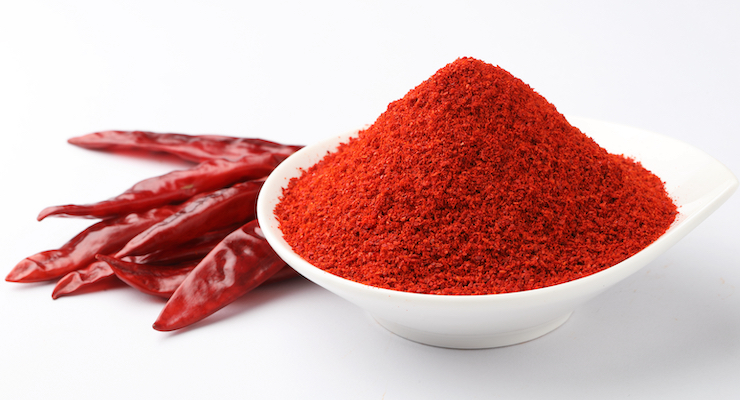07.22.21
Capsaicin, an extract from pungent red chili peppers, has garnered a great deal of attention due to the connections researchers have made between this ingredient and metabolic improvements relevant to weight management.
In a new study, published in the Journal of Dietary Supplements, researchers analyzed the potential weight management benefits of a new supplement ingredient, Capsifen, a formulation containing capsaicinoids-rich chili extract with a fenugreek dietary fiber. The formulation, which allows for a more sustained release of the capsaicinoids, is intended to avoid some side effects associated with capsaicin, such as digestive issues which can lead to poor tolerability.
In the study, 24 overweight but otherwise healthy subjects were administered either a placebo or a 200 mg Capsifen supplement once daily for 28 days. Researchers tracked both body composition, as well as appetite and eating behavior changes throughout the duration of the study period, with evaluations such as the Three-Factor Eating Questionnaire, and the Council of Nutrition Appetite Questionnaire.
The authors of the study found a number of significant changes among the experimental group compared to the placebo group, such as a significant decrease in bodyweight (2.1% compared to placebo), waist/hip ratio (4% compared to placebo), and BMI (2.2% compared to placebo). In the experimental group, blood tests confirmed the bioavailability of the capsaicinoids from the supplements administered.
Additionally, the authors noted significantly improved scores in the uncontrolled eating and reduction in appetite parameters of the questionnaires the subjects in the experimental group participated in.
The authors of the study concluded that at the dosage used in the experiment, Capsifen could potentially be used as a safe and tolerable body weight management ingredient.
In a new study, published in the Journal of Dietary Supplements, researchers analyzed the potential weight management benefits of a new supplement ingredient, Capsifen, a formulation containing capsaicinoids-rich chili extract with a fenugreek dietary fiber. The formulation, which allows for a more sustained release of the capsaicinoids, is intended to avoid some side effects associated with capsaicin, such as digestive issues which can lead to poor tolerability.
In the study, 24 overweight but otherwise healthy subjects were administered either a placebo or a 200 mg Capsifen supplement once daily for 28 days. Researchers tracked both body composition, as well as appetite and eating behavior changes throughout the duration of the study period, with evaluations such as the Three-Factor Eating Questionnaire, and the Council of Nutrition Appetite Questionnaire.
The authors of the study found a number of significant changes among the experimental group compared to the placebo group, such as a significant decrease in bodyweight (2.1% compared to placebo), waist/hip ratio (4% compared to placebo), and BMI (2.2% compared to placebo). In the experimental group, blood tests confirmed the bioavailability of the capsaicinoids from the supplements administered.
Additionally, the authors noted significantly improved scores in the uncontrolled eating and reduction in appetite parameters of the questionnaires the subjects in the experimental group participated in.
The authors of the study concluded that at the dosage used in the experiment, Capsifen could potentially be used as a safe and tolerable body weight management ingredient.




























